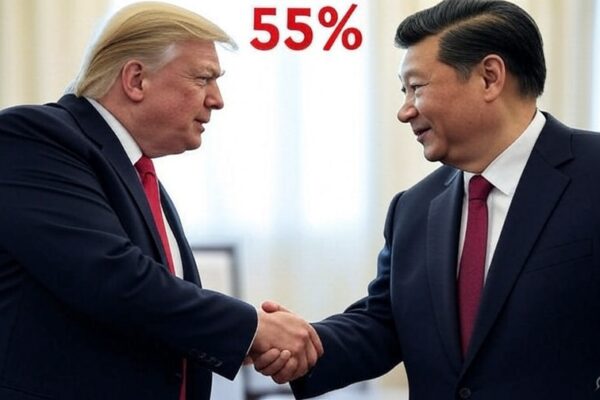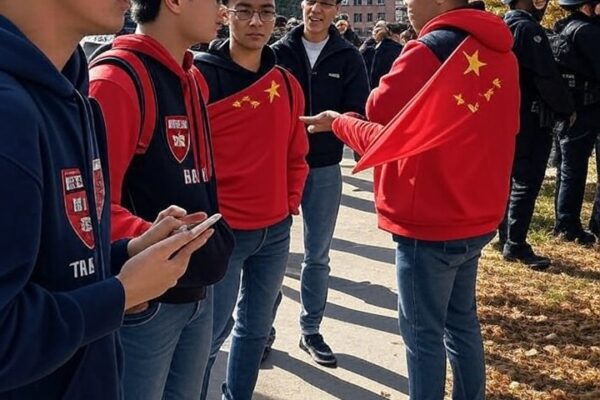
Category: Americas
RFA wins two National Murrow awards for Myanmar coverage
Recognition comes as military junta and China dominate Burmese information space WASHINGTON – Radio Free Asia (RFA) has won two National Edward R. Murrow awards for chronicling the struggles facing young people from post-coup Myanmar. The recognition for this coverage comes as RFA was forced to suspend much of its news-gathering operations due to the U.S. Agency for Global Media’s illegal cancellation of its grant and RFA’s uncertain future. “It is hard to believe that right now, Myanmar’s media is dominated by its military junta and China,” said Bay Fang, RFA President and CEO. “Challenging those narratives through hard-hitting, fact-based reporting has been RFA’s mandated mission by the U.S. Congress. “These awards serve as a stark reminder of RFA’s critical role in the Asia-Pacific region even as many of our language services, including RFA Burmese, have gone silent.” The multimedia feature Myanmar’s Gen-Z fighting for a nation’s future, produced last November, includes videos, images and text profiling the challenges and resilience of the generation coming of age after the February 2021 military takeover. An RFA team based outside the country returned to Myanmar to speak to people on the front lines in one eastern region to learn about their stories – and their hopes for the revival of their blood-stained country. More than three years of fighting has displaced more than 3 million people inside the country, and refugees continue to spill across borders to the west, south and east. While the military maintains control of the country’s largest cities, anti-junta forces have made unprecedented territorial gains. A 2023 survey of Myanmar found more than 5.1 million Myanmar adults accessed RFA content regularly either online or through shortwave broadcasts. The awards will be presented by the Radio Television and Digital News Association in New York on the evening of October 13. State of play at RFA: Until March, RFA was one of the only international outlets to have a sustained in-country presence since the 2021 military coup. RFA’s Burmese Service was forced to stop operations after the USAGM in March 2025 illegally cancelled the grant that funds Radio Free Asia. At present, 90 percent of RFA’s staff has been either put on unpaid leave or has resigned. RFA continues to fight the illegal termination of its grant funds. The matter is currently being litigated in the DC Circuit Court of Appeals, with a hearing scheduled for late September. We are : Investigative Journalism Reportika Investigative Reports Daily Reports Interviews Surveys Reportika

An ALL PROPAGANDA visit of Chinese Xi to Tibet to mark 60 years of contested rule
Chinese leader Xi Jinping made a rare visit to Tibet on Wednesday to mark the 60th anniversary of the founding of the Tibet Autonomous Region

Myanmar’s ruling junta sets Dec. 28 election date as civil war rages
The military-backed election commission in Myanmar set Dec. 28 for the initial phase of long-promised elections, the first since the 2021 coup that overthrew the country’s last elected government and kicked off a still-raging civil war. Junta leadership nominally transferred power to an interim government last month in preparation for the elections. Last week, Min Aung Hlaing, the military chief and acting president, called for increased security to protect politicians and voters, warning of a rise in attacks on civil servants, according to the state-run Global New Light of Myanmar newspaper. International observers have framed the elections as a charade to keep Min Aung Hlaing and his generals in power. Critics point to a lack of free media in Myanmar, and that most officials in the last elected government, including leader Aung San Suu Kyi, have been arrested. U.N. reports detail a regime of torture inflicted on those the military has detained. It’s also unclear how a truly national election could take place in Myanmar. Control of the country splintered after the coup, with parts of the country held by bands of pro-democracy fighters or ethnic rebel groups, some of whom have pledged to block polls in their areas. “I don’t think the election will hold any significance for the people,” a 63-year-old citizen in the western state of Rakhine told Agence France-Presse. “I think this election is only being held to give power to military dictators until the world ends.” Meanwhile, clashes continue in Myanmar’s civil war, which has killed thousands, spawned rampant poverty, and left more than 3.5 million people displaced, nearly 40 percent of whom are children. On Sunday, at least 24 people were reportedly killed after the military bombed a hospital in Mawchi, a small town in Kayah state, the Associated Press reported. Includes reporting from the Associated Press, Agence France-Presse, and Reuters. We are : Investigative Journalism Reportika Investigative Reports Daily Reports Interviews Surveys Reportika

Two Chinese Charged in Smuggling US AI Chips to China
Two Chinese nationals have been charged with smuggling restricted U.S. AI chips to China via Singapore and Malaysia. This case ties into IJ-Reportika’s investigation into China’s global AI ambitions and talent repatriation strategy.

BRICS Expansion Signals Shift in Global Power Dynamics Amid Internal Divisions
Explore the expanding influence and challenges of BRICS as it grows beyond five members, reshaping global economics and politics amid internal divisions and rivalries.

FAKE NEWS MENACE by The New York Times and CNN
In a polarized media landscape, The New York Times and CNN have faced accusations of spreading misleading information. This report examines ten instances where these outlets were criticized for inaccurate or biased reporting, from the Hunter Biden laptop story to the Covington Catholic incident. Supported by retractions, lawsuits, and contradictory evidence, these cases highlight the challenges of maintaining journalistic integrity and the importance of critical media consumption.

US and China Reach Trade Framework Agreement, Trump Announces 55% Tariffs
On June 11, 2025, President Trump announced a US-China trade framework to supply critical rare earth minerals and magnets, with 55% tariffs on Chinese imports. Negotiated in London, the deal awaits approval from Xi Jinping.

‘Trees Not Tesla’: Australian City’s Protest Sparks Debate Over Environment and Elon Musk
In Tonsley, Australia, the “Trees Not Teslas” campaign fights to save 60 trees from Tesla’s proposed battery recycling facility. With 95% of public submissions opposing the plan, activists cite environmental concerns and Elon Musk’s controversial image, while the council emphasizes job creation. The proposal awaits state approval amid growing tensions.

Harvard’s Scandal: Survey Exposes Chinese Students’ Loyalty
Harvard’s CCP controversy grows as IJ-Reportika survey shows 76% of Chinese students plan to return to China, raising questions of loyalty amid espionage fears.

Putin Rejects Trump’s Vatican Push for Peace Talks
Tensions rise as Russian President Putin rejects Trump’s proposal for peace talks at the Vatican. Meanwhile, Trump and Zelenskyy trade accusations amid Russia’s largest drone strike on Ukraine.

